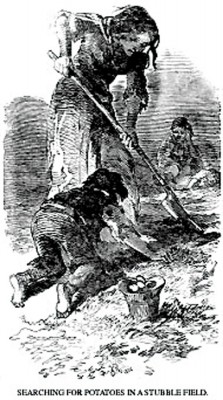Search Results for 'Society of Friends'
5 results found.
The Great Famine - A watershed in Irish history
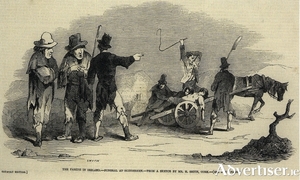
During the seven years of the Great Famine approximately one million people died. A million more emigrated causing Ireland’s population to fall by between 20 and 25 per cent. The initial cause of famine was a potato disease which ravaged potato crops throughout Europe during the 1840s.
The Great Famine in the Claddagh
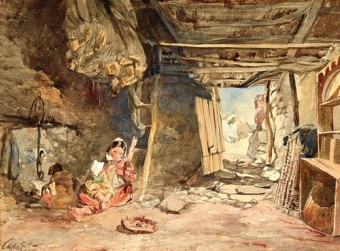
In March 1846, it was reported, “In the town of Galway, people were suffering under the most trying privations; not a stone of potatoes could be purchased at market for the use of 20,000 inhabitants, and in the western suburbs in the Claddagh, the fishermen have been living on half rotten potatoes.”
Attempts made in 1847 to establish fishing industry in the west
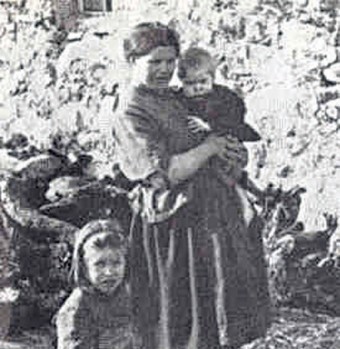
The tragedy of the Great Famine was compounded by the fact that our seas were full of fish, yet the lack of a sustainable fishing industry, and a general dislike of fish among the peasantry, left untouched this abundant food source. As the appalling statistics of hunger, riots, death, fever and evictions began to penetrate the British government, some action was at last taken*. Unsuitable as it was for Irish palates, vast quantities of American maize was imported, and distributed. Public relief schemes, such as canal-building and new roads were introduced to provide some employment, and efforts were made to establish a fishing industry.
Hundreds of thousands starved while the sea teemed with fish
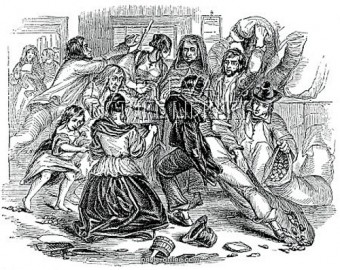
Reading William Henry’s book Famine - Galway’s Darkest Days*, I was struck yet again by the fact that while thousands of people died of starvation in the west of Ireland, when whole communities abandoned their homes in a desperate search for food, our seas were boiling with fish. The author tells us that in Galway at the beginning of the Great Famine in 1845 the Claddagh fishermen fiercely protected their fishing rights in the Bay, which they regarded as their exclusive property. But as the famine dragged on to the end of the decade the Claddagh fishermen had no means left for catching fish. They had pawned their boats and fishing equipment for food. The historian Cecil Woodham-Smith in her classic account of the Great Famine**, tells us that on January 9 1847, ‘all boats were drawn up to the quay wall, stripped to the bare poles, not a sign of tackle or sail remaining....not a fish was to be had in the town, not a boat was at sea.’
